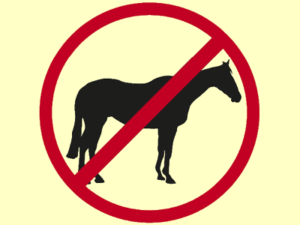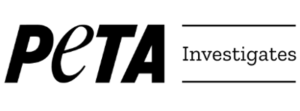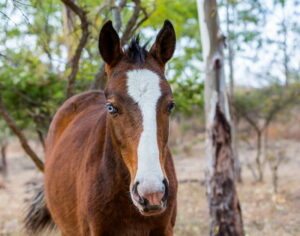Does Illegal Horse Racing Exist? Where Does It Happen?
 Royal Ascot, occurring in June every year. The Grand National, held in April. Cheltenham Festival, taking place in March on an annual basis. June’s Epsom Derby. These and more are all popular, respected and licensed horse race events. They take place in various locations across the United Kingdom and Ireland and they are the sort of events that most people think of when thinking of horse racing.
Royal Ascot, occurring in June every year. The Grand National, held in April. Cheltenham Festival, taking place in March on an annual basis. June’s Epsom Derby. These and more are all popular, respected and licensed horse race events. They take place in various locations across the United Kingdom and Ireland and they are the sort of events that most people think of when thinking of horse racing.
That is because they are broadcast on television and attended by many people. These race meeting are the cream of the crop and they’re also legal horse racing events at the same time. There is so much legal racing in the UK, with over 1500 meetings a year, that most people aren’t likely to consider anything else.
What we don’t hear about are meetings and gambling on illegal horse racing, yet it does exist. The problem is not particularly big in the UK due to how big the racing and gambling industry is but it does happen in other countries, even where racing is legal and licensed. In other places where gambling and racing is illegal, naturally all the racing that is held is illegal and there is no way to truly know how big it is.
PETA Revelations On Underground Racing
 The most recent reporting on underground horse racing came from PETA. The People for the Ethical Treatment of Animals group did an investigation of its own. This saw the team look into unregulated Quarter Horse racing occurring in Georgia. This, it said, is happening at the largest “bush track” within the state and that track goes by the name of Rancho El Centenario. The investigation also reported that more than 100 of these tracks are active across the USA.
The most recent reporting on underground horse racing came from PETA. The People for the Ethical Treatment of Animals group did an investigation of its own. This saw the team look into unregulated Quarter Horse racing occurring in Georgia. This, it said, is happening at the largest “bush track” within the state and that track goes by the name of Rancho El Centenario. The investigation also reported that more than 100 of these tracks are active across the USA.
Quarter Horses are a fast breed, they can run at top speeds over distances of a quarter mile or less. Within the races taking place at the Georgia track, between two and six horses compete and they race out of traps across distances of up to 400 yards. A single race day can involve up to 20 separate races taking place.
During its investigation, PETA discovered that there is a lot more to this industry, though. Spectators attending them bet hundreds of thousands of dollars on the races. Meanwhile, trainers and jockeys whip and drug their horses in severe ways.
Electroshock devices are utilised to try and secure the victory in some races. Discarded syringes at the course went through analysis by laboratories after the races, within them, drugs including cocaine, caffeine and methamphetamine came up positive. These concoctions rev horses up and mask injuries to them, all in the name of building up the best speed possible with little regard for the welfare of the animal.
In the state of Georgia, there is no official sanctioned horse racing. Thus, there are no laws surrounding unregulated racing, either. And this is how races are able to take place every fortnight at the noted track. Admission at the door is $100 per head, and this is payable in cash only. It is also due to the lack of laws that the blatant injection of drugs takes place on the horses. Trainers and jockeys insert needles into their horses’ necks in full view of the crowds.
Match races used to be official in Georgia hundreds of years ago and at the Rancho El Centenario course, quarter horse racing became very popular. But once racing commissions brought more order to the sport, it stopped. These types of races remained in operation in Mexico, being popular with cowboys. Meanwhile, in the United States, they weren’t as successful. Until more recently, that is. Experts and horsemen have said that the bush circuit is having a boom period. The animal abuse and doping go unchecked at the tracks and it also exists as a potential threat to the integrity of the horse breed itself.
If the same practices were occurring at regulated tracks, it would invoke serious discipline and despite the fact that betting on horses is illegal in Georgia, these laws aren’t adhered to. During the race when PETA investigated, bookmakers were present alongside the track. They called out bets, collected cash and distributed payouts at the end.
But PETA wasn’t about to stand for this, which was part of the reason for their attendance. Lawyers representing the animal rights group formed a plan. They sent a letter to the Lamar County Sheriff’s Office relating to the underground races.
“Systematic and repeated animal abuse, including whipping, electric-shocking, and drugging horses to push them past their natural limits”,
was noted in the letter. This, the letter said, led to several runners breaking down and dying on the track. The extensive gambling was also highlighted within. It called for a criminal investigation to take place at the racecourse.
Not Only Georgia
 While the track in Georgia is one that has recently been in the news, others are guilty, too. Angela Pelzel-McCluskey is an equine epidemiologist. She is responsible when it comes to stopping diseases spreading through the industry. In 2008, she saw a malnourished 7-year-old quarter horse in Florida.
While the track in Georgia is one that has recently been in the news, others are guilty, too. Angela Pelzel-McCluskey is an equine epidemiologist. She is responsible when it comes to stopping diseases spreading through the industry. In 2008, she saw a malnourished 7-year-old quarter horse in Florida.
Lethargic and refusing to eat or drink, it tested positive for piroplasmosis. That disease was rare in the USA but was very endemic within Mexico. A horse diagnosed with the disease is often euthanised. Investigators at the time traced the infection and found 20 other horses suffering, all were participants in unsanctioned racing, according to Pelzel-McCluskey.
Piroplasmosis usually spreads through ticks. Yet in that 2008 case, investigators found that contaminated needles were the cause. Injecting drugs through those re-used syringes spread the disease through the horses.
One year after, the same thing happened in Missouri with eight quarter horses. Each horse came under the ownership of the same person. Since those days, the phenomenon of those unregulated races has grown and Pelzel-McCluskey has watched in alarm.
As things stand at the moment, there is no official record of the size of the bush circuit. Even so, Pelzel-McCluskey has been doing her own research into it. Via social media, she has located a total of 89 tracks across 27 U.S. states. Clusters of the piroplasmosis disease are also now much more common in the USA. According to figures, since 2008, 632 quarter horse racehorses ended up infected. The same is true of equine infectious anaemia (EIA), which also has no cure.
In May of this year, 26 horses were suffering from EIA in California. Euthanasia had to take place on each of them to stop the disease from spreading further.
The growth of the bush circuit can be problematic for horses within the regulated sector. Several horses have ended up in the bush tracks after racing on regulated courses. Some of them were top horses in the industry. Trump My Record, for example, secured almost $800,000 in 2019 from a legal race. The horse was then auctioned off to Texas horseman Jesus Espinosa for $460,000. It didn’t take long for the horse to appear at bush tracks across the USA.
“What I hear is that they made their money back in two match races just by the gate”,
said Janet VanBebber. She serves as the chief racing officer of the American Quarter Horse Association. And Trump My Record has gone on to appear at many Rancho El Centurio races.
VanBebber also commented on the fact that bush circuit races cut into regulated racing, which already suffers from dwindling numbers and profits. Because of this, riders are taking horses to the bush circuit. They know that their payouts can be a lot bigger from these events but many believe that organised crime is rife in these enviroments.
“It’s not a local crime”,
said District Attorney Jonathan Adams. He oversees prosecutions in Lamar County and two other locations.
“It’s absolutely a regional, if not multi-country, multi-state, multi-national kind of operation”.
Occasional police raids of bush tracks have taken place over the years. In 2007, they arrested 100 people in Oklahoma at a racing event. The seizing of syringes and shock devices took place in Texas in 2019, too. Charges laid out against the track owners involved them breaking unregulated horse racing laws. Those statutes are not in place within every U.S. state, though. As is the case in Georgia.
Does It Happen Outside Of The USA?
 The USA does seem to be a prime location for illegal horse racing to take place but it’s not the only place it occurs. Travelling south to Mexico would see you able to experience it, too. In April of 2022, a report came to light of a cartel clash at an illegal horse race. This occurred in Chihuahua and saw two criminal groups butt heads.
The USA does seem to be a prime location for illegal horse racing to take place but it’s not the only place it occurs. Travelling south to Mexico would see you able to experience it, too. In April of 2022, a report came to light of a cartel clash at an illegal horse race. This occurred in Chihuahua and saw two criminal groups butt heads.
Eleven people passed away as a result of the outburst. Taking place at a horse racing track in El Sauz, at least one victim was a woman. People had gathered to spectate an unsanctioned horse race at El Mezquite racetrack.
Yet you can even look at the United Kingdom to find it isn’t all regulated and legal. Back in 2002, BBC News reported on clandestine horse racing taking place. This, it said, occurred on public roads across the country. Inside Out, a BBC TV programme at the time, also reported that bets occurred on those races, too.
Investigations by the BBC team saw them film groups partaking in horse races on main roads. This happened on the roads of Hertfordshire, County Durham and Cumbria. They also talked to those taking part in the trotting races. Top horses within the races could fetch up to £20,000 at markets, too.
One of the participants, Mark Clarke, said that the trotting races occurred on a regular basis. In them, harnessed carriages raced against each other on roads across England. Large amounts of money were also wagered on the events.
“Races are happening every week”
“The police can’t stop you. Some people race for thousands, some people race for £9,000 or £10,000”.
Of course, this all happened before the UK introduced its Gambling Act 2005. Reports of illegal horse races in the country have not come to light in recent times. There are many more regulations in place now to tackle such activities and that relates to both illegal horse racing and wagering.
And across the Irish sea to Ireland, underground racing has also taken place. In April of 2022, the Sunday World reported on that problem. It said that those with serious criminal connections monopolise it, yet despite this, thousands of fans continue following the illegal races.
These take place every single month. It’s not only those based in Ireland that have a vested interest, either. Jimmy Price of Maidstone in Kent has experienced jail several times, for different crimes, yet he is also a regular racer in both Ireland and England.
In September 2021, Garda (Ireland’s national police force) carried out raids in Limerick. This saw them target members of the McCarthy faction. Through this, 10 horses ended up seized, as was €550,000 in cash.
The races of this nature occurring in Ireland usually see two sulky racers compete. They are lightweight carts pulled along by horses. As the competitors race down the road, an entourage of cars and jeeps block the traffic behind. Spectators and participants arrive from all over Ireland to take part.
The horses are often imported from the USA as well as bred in Ireland. These can change hands for up to €20,000. Followers of the races offer bets over social media on who will be the victor. Offers of €500 a bet are not uncommon but animal rights activists say that the horses go through training at too young an age. Plus, running on tarmac roads at high speeds is dangerous for them. This has led to calls for the outright ban on sulky road-racing.



